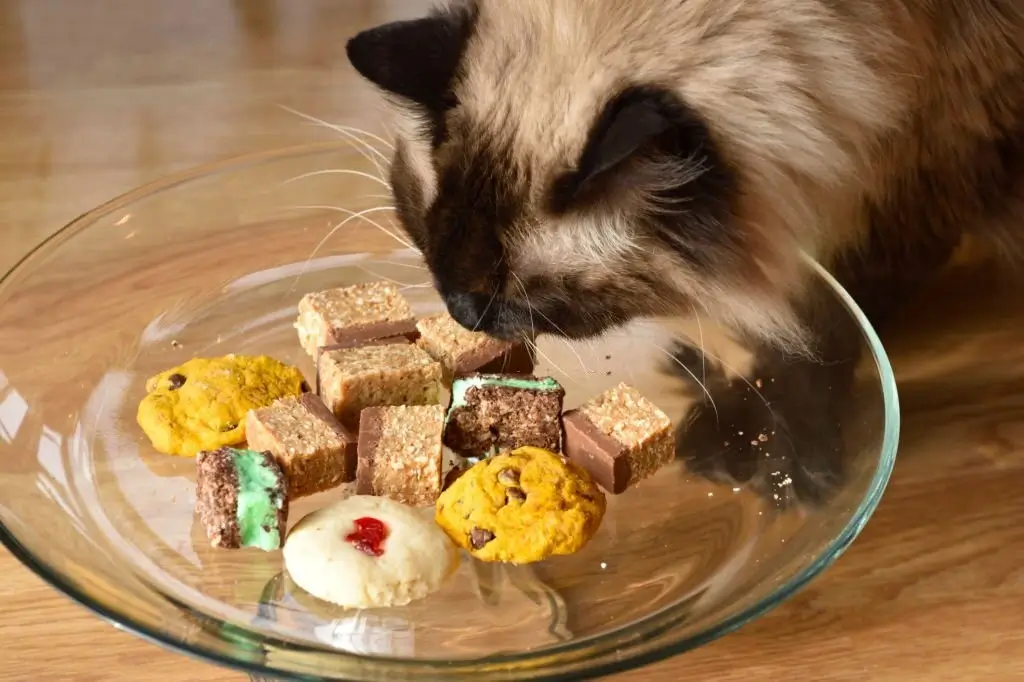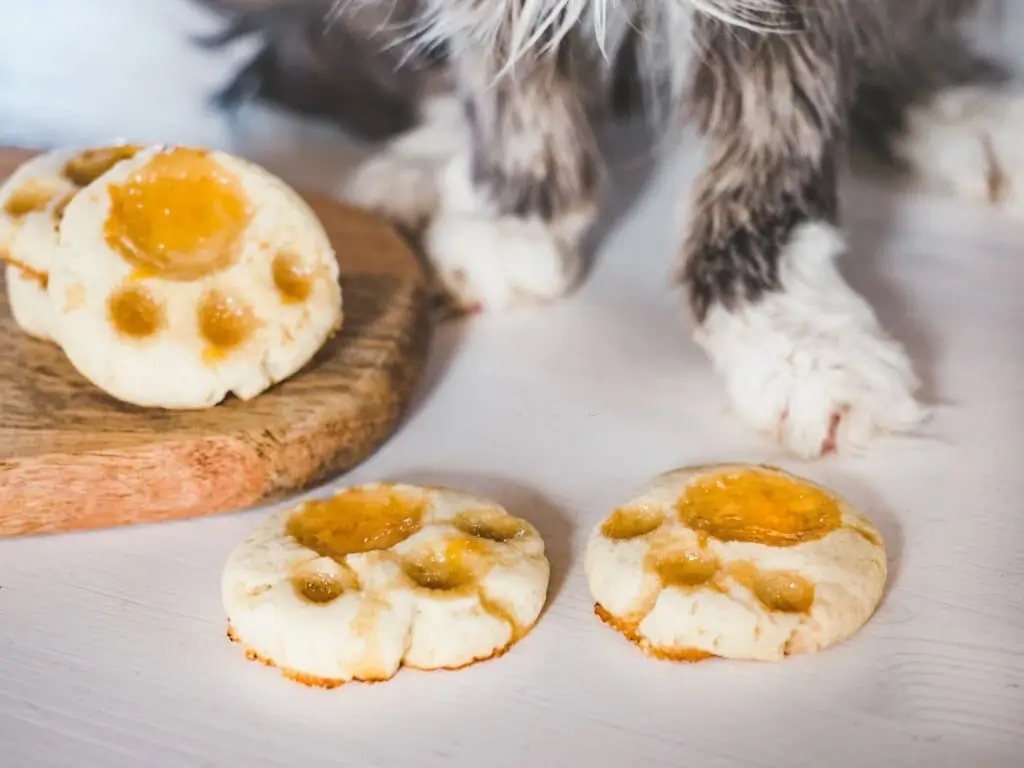As a cat owner, it’s natural to want to share our favorite treats with our furry friends. However, not all human foods are safe for cats to eat, including cookies. In this article, we’ll explore whether or not cats can eat cookies, what types of cookies are safe, and what to do if your cat accidentally eats a cookie.
Can Cats Eat Cookies?
The short answer is no, cats should not eat cookies. Cookies are high in sugar, fat, and carbohydrates, which can be harmful to cats’ health. Additionally, many cookies contain ingredients that are toxic to cats, such as chocolate, raisins, and macadamia nuts.
Sugar
Cats do not require sugar in their diet, and consuming too much sugar can lead to obesity, diabetes, and other health problems. While small amounts of sugar may not be immediately harmful, it’s best to avoid giving your cat cookies that contain high amounts of sugar.
Fat
Cats require fat in their diet to maintain healthy skin and coat, as well as to provide energy. However, too much fat can lead to obesity and other health problems. Cookies are often high in fat, which can be harmful to cats if consumed in large quantities.

Carbohydrates
Cats are obligate carnivores, which means they require a diet that is high in protein and low in carbohydrates. While carbohydrates are not inherently harmful to cats, consuming too many can lead to weight gain and other health problems. Cookies are often high in carbohydrates, which can be harmful to cats if consumed in large quantities.
Toxic Ingredients
As mentioned earlier, many cookies contain ingredients that are toxic to cats, such as chocolate, raisins, and macadamia nuts. These ingredients can cause a range of health problems, from vomiting and diarrhea to seizures and even death.
Chocolate
Chocolate contains theobromine, which is toxic to cats and can cause a range of health problems, including vomiting, diarrhea, tremors, seizures, and even death. The darker the chocolate, the more theobromine it contains, so even a small amount of dark chocolate can be harmful to cats.
Raisins
Raisins and grapes are toxic to cats and can cause kidney failure. Even small amounts of raisins can be harmful to cats, so it’s best to avoid giving your cat cookies that contain raisins.
Macadamia Nuts
Macadamia nuts are toxic to cats and can cause vomiting, tremors, and fever. While the exact mechanism of toxicity is unknown, even small amounts of macadamia nuts can be harmful to cats.
What Types of Cookies are Safe for Cats?
While most cookies are not safe for cats, there are a few types of cookies that are safe to give to your furry friend in moderation.

Plain Shortbread Cookies
Plain shortbread cookies are a simple and safe treat to give to your cat in moderation. Shortbread cookies are low in sugar and fat, and do not contain any toxic ingredients.
Cat Treats
There are many cat treats on the market that are specifically formulated to meet cats’ nutritional needs. These treats are typically low in sugar and fat and contain ingredients that are safe for cats to eat.
Homemade Treats
If you want to give your cat a special treat, you can make homemade treats using cat-friendly ingredients. Some examples of cat-friendly ingredients include cooked chicken, fish, or beef, and small amounts of cheese or plain yogurt.
What to Do if Your Cat Accidentally Eats a Cookie
If your cat accidentally eats a cookie, it’s important to monitor them for any signs of illness. If your cat starts vomiting, has diarrhea, or exhibits any other unusual symptoms, contact your veterinarian immediately.
In most cases, your veterinarian will recommend monitoring your cat’s symptoms and providing supportive care, such as fluids and electrolytes. In severe cases, your cat may require hospitalization and treatment to address any complications from the cookie consumption.
Preventing Accidental Cookie Consumption
The best way to prevent accidental cookie consumption is to keep cookies and other human foods out of your cat’s reach. Store your cookies in a secure location that your cat cannot access, and avoid leaving cookies or other human foods unattended on countertops or tables.
If you have young children in the house, be sure to supervise them when they are eating cookies or other foods that could be harmful to your cat. Teach them to never feed your cat anything without your permission.
Additionally, make sure to properly dispose of any cookies or other foods that your cat cannot eat. Do not leave them in the trash or on the counter where your cat could get to them.
Conclusion
In conclusion, cats should not eat cookies, as they are high in sugar, fat, and carbohydrates, and often contain ingredients that are toxic to cats. However, there are a few types of cookies that are safe for cats to eat in moderation, including plain shortbread cookies and homemade treats made with cat-friendly ingredients.
If your cat accidentally eats a cookie, monitor them for any signs of illness and contact your veterinarian if necessary. To prevent accidental cookie consumption, keep cookies and other human foods out of your cat’s reach and properly dispose of any foods that your cat cannot eat. By following these guidelines, you can help keep your cat safe and healthy.



